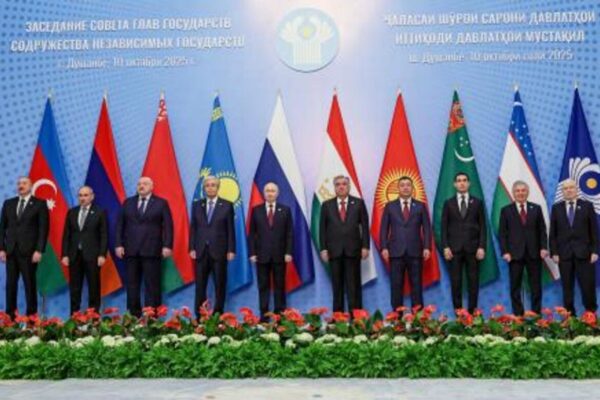Transformative Leadership Practices of the Target CEO
Transformative Leadership Skills
Transformative leadership skills are essential in today’s rapidly evolving retail landscape. A successful leader must embody adaptability, emotional intelligence, and visionary thinking. These attributes enable leaders to navigate challenges and capitalize on opportunities. According to a recent study, companies with adaptive leadership structures show a 30% increase in employee engagement and productivity. As retail environments become more competitive, leaders must implement innovative strategies that encourage collaboration and creativity among teams.
To exemplify these practices, the Target CEO demonstrates a commitment to fostering open communication, allowing team members to voice their ideas and contribute to decision-making processes. This method not only builds trust but also encourages a culture of ownership within the organization.
"True leadership isn’t about being in charge; it’s about empowering others," emphasizes a renowned leadership expert.
Effective leaders also prioritize continuous learning and professional development, which further strengthens their teams’ capabilities. By adopting these transformative skills, retail leaders can better position their organizations for sustainable success.
| Skill | Impact |
|---|---|
| Adaptability | Enhances responsiveness to market changes |
| Emotional Intelligence | Strengthens team dynamics and collaboration |
| Visionary Thinking | Drives long-term strategic planning |
| Effective Communication | Fosters a culture of transparency and trust |
Innovative Strategies for Leaders
Effective leaders in the retail sector must embrace innovative strategies to stay ahead in a competitive marketplace. A hallmark of transformative leadership is the ability to anticipate trends and adapt quickly. This includes leveraging data analytics to understand customer behavior and preferences, enabling leaders to make informed decisions that resonate with their audience. Furthermore, fostering a culture of experimentation encourages teams to test new ideas without the fear of failure, which is essential for growth and creativity. By implementing cross-functional collaboration, leaders can break down silos within their organizations, promoting the sharing of insights and diverse perspectives. These strategies not only enhance operational efficiency but also strengthen employee engagement, driving overall performance in alignment with corporate objectives. As leaders navigate the complexities of retail, these innovative approaches serve as vital instruments for sustaining long-term success.
Operational Excellence in Retail
Operational excellence in retail is pivotal for staying competitive in a rapidly evolving marketplace. The Target CEO exemplifies this through a keen focus on optimizing supply chain efficiency and enhancing customer experience. By leveraging data analytics, the leadership team is able to anticipate consumer trends and identify areas for improvement. This proactive approach not only minimizes operational costs but also aligns product offerings with customer preferences. Additionally, fostering a culture of continuous improvement empowers employees at every level to contribute innovative ideas that streamline processes. Ultimately, these strategies culminate in a seamless shopping experience, thereby elevating Target’s status as an industry leader committed to excellence.
Fostering Corporate Culture
Fostering a positive corporate culture is essential for the overall success of an organization, particularly in the retail sector. Leaders must create an inclusive environment where employees feel valued and inspired to contribute their ideas. This can be achieved through open communication, where team members are encouraged to share feedback and engage in discussions that shape company policies and practices. Moreover, recognizing and rewarding individual and team achievements strengthens this culture, promoting a sense of belonging. A robust corporate culture not only enhances employee satisfaction but also directly impacts customer experience by ensuring motivated employees deliver exceptional service. Ultimately, this focus on culture facilitates alignment between organizational values and employee behavior, driving targets that boost operational excellence within the company.
Leadership Standards in Retail
In the retail industry, effective leadership standards hinge on the ability to inspire and motivate teams while fostering a customer-centric approach. Leaders are expected to embody qualities such as adaptability, inclusiveness, and decisiveness. This enables them to navigate the fast-paced nature of retail, characterized by constant change and innovation. Furthermore, successful leaders prioritize communication, ensuring that their vision is clearly articulated to all employees. By fostering a culture of transparency and trust, they empower teams to take ownership of their roles and contribute meaningfully to organizational goals. As retail evolves with technological advancements and changing consumer behaviors, leaders must also demonstrate a commitment to continuous learning and development. This adaptability not only enhances their effectiveness but sets a standard for emerging leaders within the industry.
Success Factors of Target CEO
The success of the Target CEO can be attributed to a multifaceted approach that emphasizes strong communication skills, strategic vision, and an unwavering commitment to team empowerment. By fostering an environment where employees feel valued and engaged, the CEO enhances morale and productivity, directly contributing to operational success. Effective decision-making also plays a critical role; the CEO strategically evaluates data-driven insights to guide corporate direction and innovation. Moreover, establishing transparent organizational goals ensures that all team members are aligned and working collaboratively toward shared objectives. This synergy not only boosts efficiency but also cultivates a robust corporate culture that is agile and responsive to market demands, distinguishing Target as a leader in the retail sector. Through these practices, the CEO exemplifies what it means to lead in today’s dynamic business environment.
Benchmark Practices for Leaders
Effective leaders adopt various benchmark practices that not only enhance their efficiency but also elevate their teams and organizations. One fundamental approach is the commitment to transparent communication. By fostering an environment where open dialogue is encouraged, leaders can cultivate trust and clarity within their teams. Another practice involves empowering employees through delegation, which promotes autonomy while nurturing talent and capabilities. Additionally, successful leaders prioritize continuous learning, ensuring that both they and their teams stay abreast of industry trends and best practices. This proactive stance not only fosters employee satisfaction but also enhances overall organizational performance. By integrating these principles into their leadership style, executives can create a vibrant workplace culture that supports sustained growth and innovation in the retail sector.
Driving Innovation in Business
Innovation remains a cornerstone of the Target CEO’s approach to leadership, with a strong emphasis on nurturing an environment where creative ideas can flourish. By encouraging open communication and collaboration among employees, the CEO fosters a culture that values diverse perspectives and embraces change. This focus on innovation is evident in Target’s continual investment in technology to enhance customer experiences and streamline operations. Furthermore, the integration of data analytics allows for informed decision-making, enabling the company to adapt quickly to market trends. Encouraging experimentation within teams not only inspires employees but also leads to groundbreaking initiatives that reflect Target’s commitment to staying at the forefront of the retail industry. Consequently, this innovative mindset not only drives business growth but also solidifies Target’s reputation as a leader in operational excellence.
You may also like

「CISプラス」創設で合意 プーチン氏ら、旧ソ連の首脳会議

Impact of the De Minimis Exemption on U.S. Imports Explained

延伸阅读
You may be interested
Experience the Unique Charm and Thrills of Jackson Hole
The Enchantment of Jackson Hole Nestled amidst the breathtaking Teton...
Walmart Stock Performance Insights and Future Outlook
Walmart Stock Historical Trends Walmart's stock performance has displayed a...
WMT Stock Trends and Insights for Strategic Investment Decisions
WMT Stock Investment Overview WMT stock, representing Walmart Inc., has...
 The New York Times
The New York Times
- Trump Administration, in Reversal, Tries to Continue Fight Against Law Firms 2026 年 3 月 3 日 Michael S. Schmidt, Jonah E. Bromwich and Devlin Barrett
- You Break It, You Own It? Not for Trump When It Comes to Iran 2026 年 3 月 3 日 Anton Troianovski
- Big Lenders’ Risky Loans Are Rattling Wall Street 2026 年 3 月 3 日 Rob Copeland and Maureen Farrell
- Trump’s Head-on-a-Pike Foreign Policy 2026 年 3 月 3 日 Ezra Klein and Jack McCordick
- As Trump Bashes Spain on Military Spending, German Chancellor Merz Piles On 2026 年 3 月 3 日 Jim Tankersley
- Labor Secretary’s Top Aides Forced Out 2026 年 3 月 3 日 Rebecca Davis O’Brien
- Apalachee High School Shooting: Colin Gray Found Guilty of Murder 2026 年 3 月 3 日 Rick Rojas and Johnny Kauffman
- Trump Immigration Sweeps Spawn Underground Safe Houses 2026 年 3 月 3 日 Miriam Jordan and Maddie McGarvey
- DHS Investigates Gregory Bovino’s Remarks About Prosecutor’s Jewish Faith 2026 年 3 月 3 日 Ernesto Londoño and Hamed Aleaziz
- Judge Vacates Punishments of Columbia Students Who Occupied a Building 2026 年 3 月 3 日 Sharon Otterman
Leave a Reply